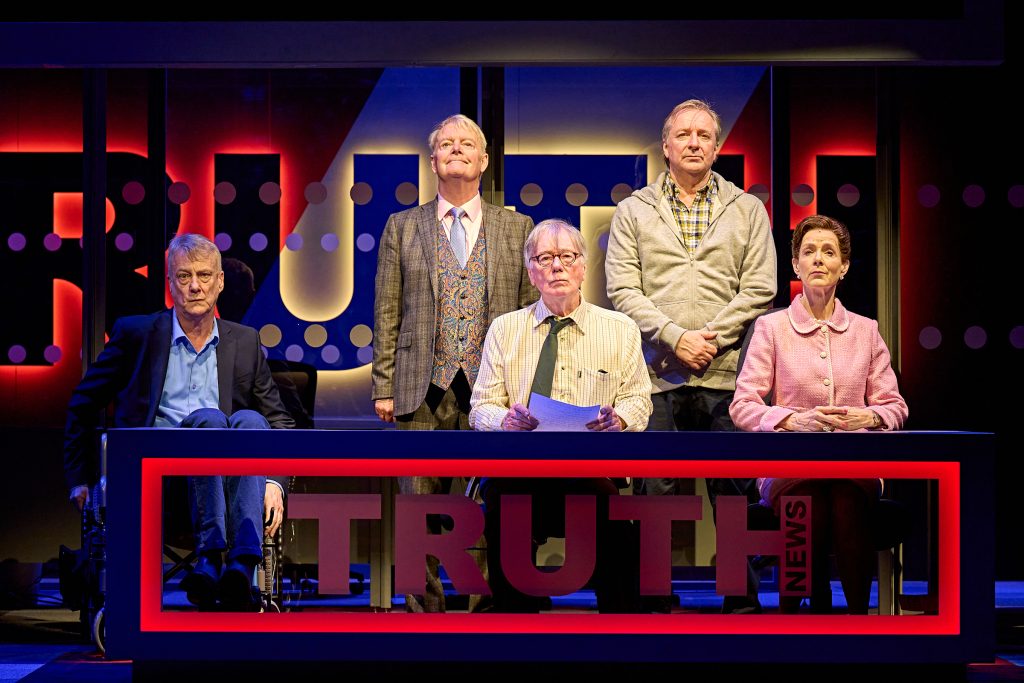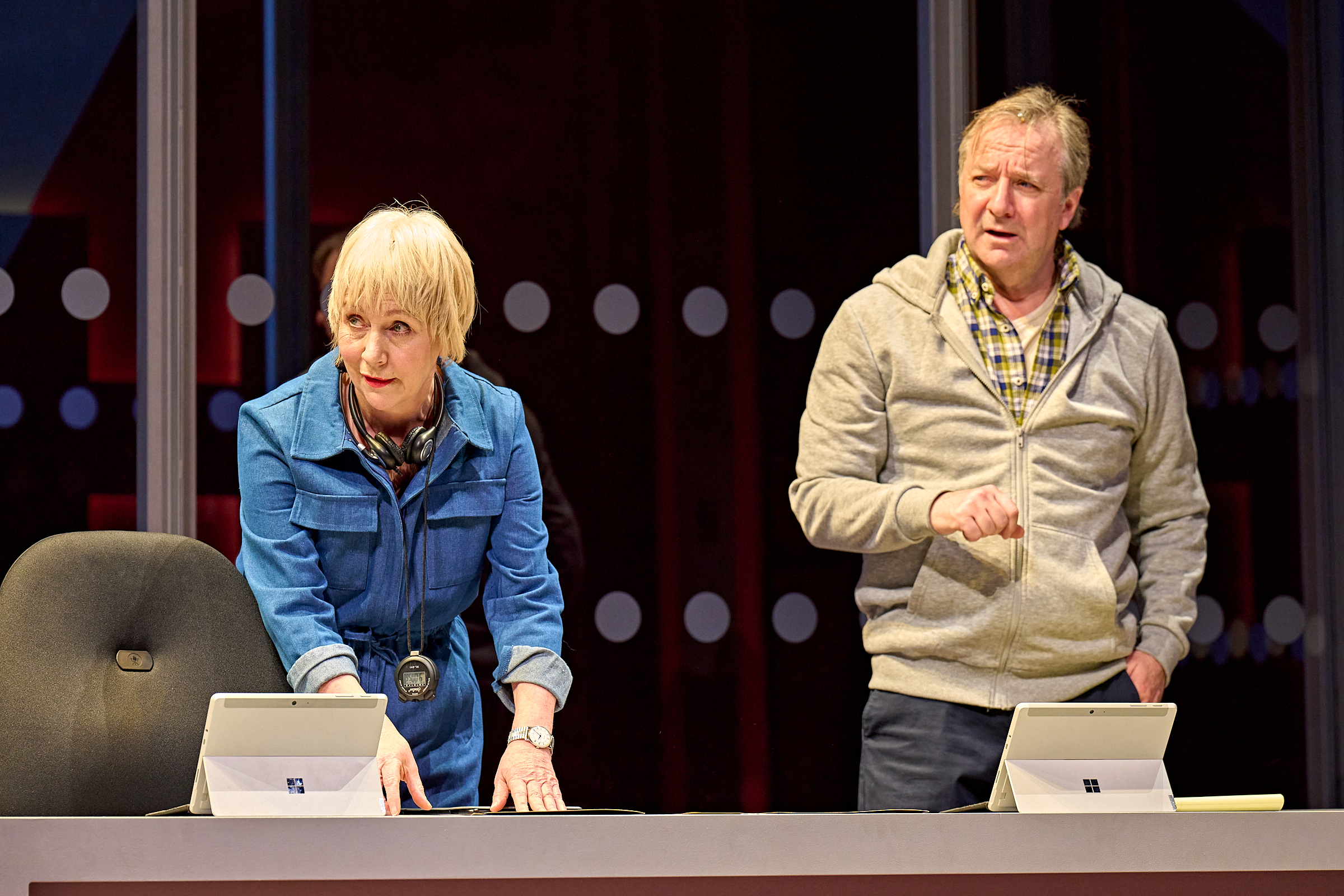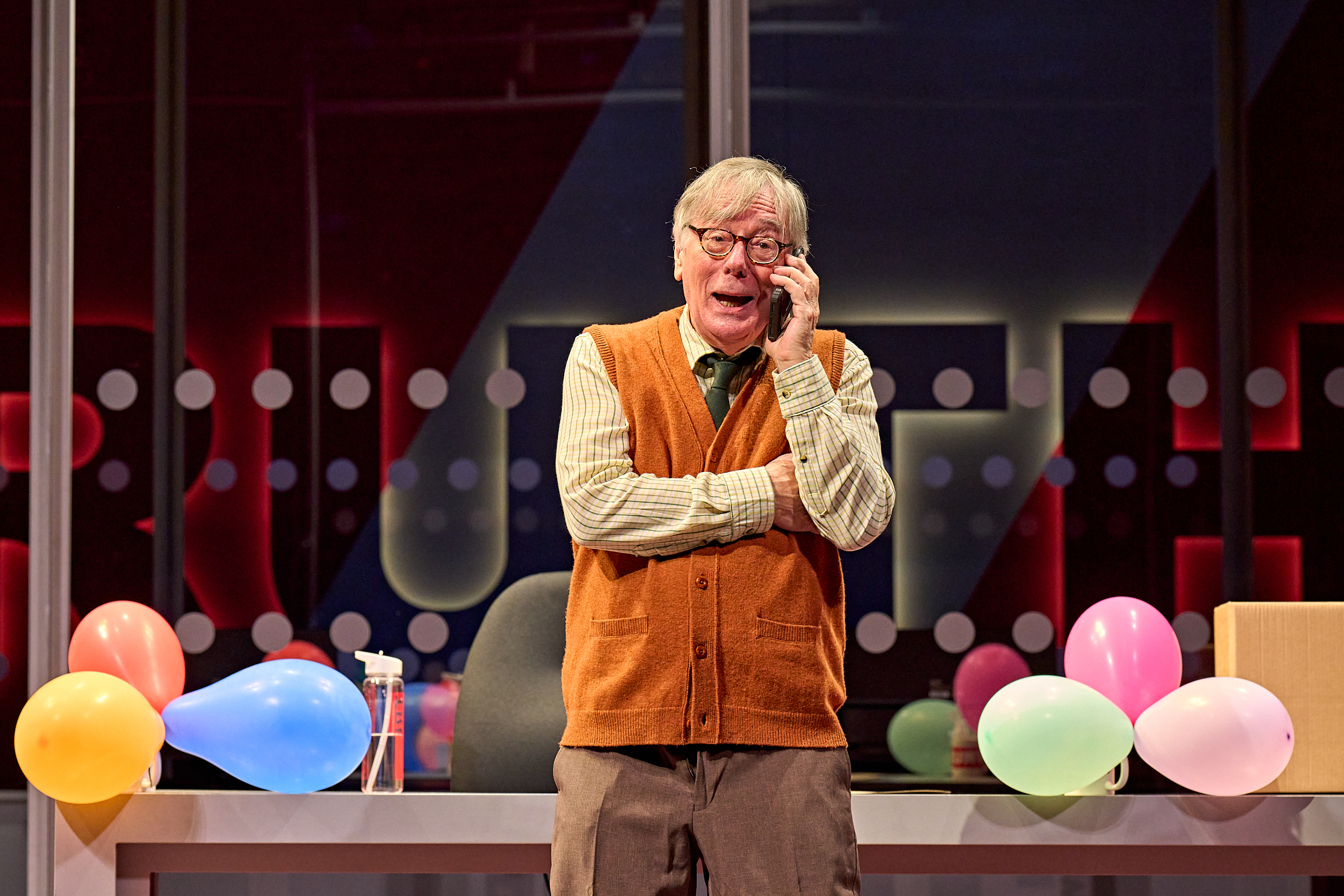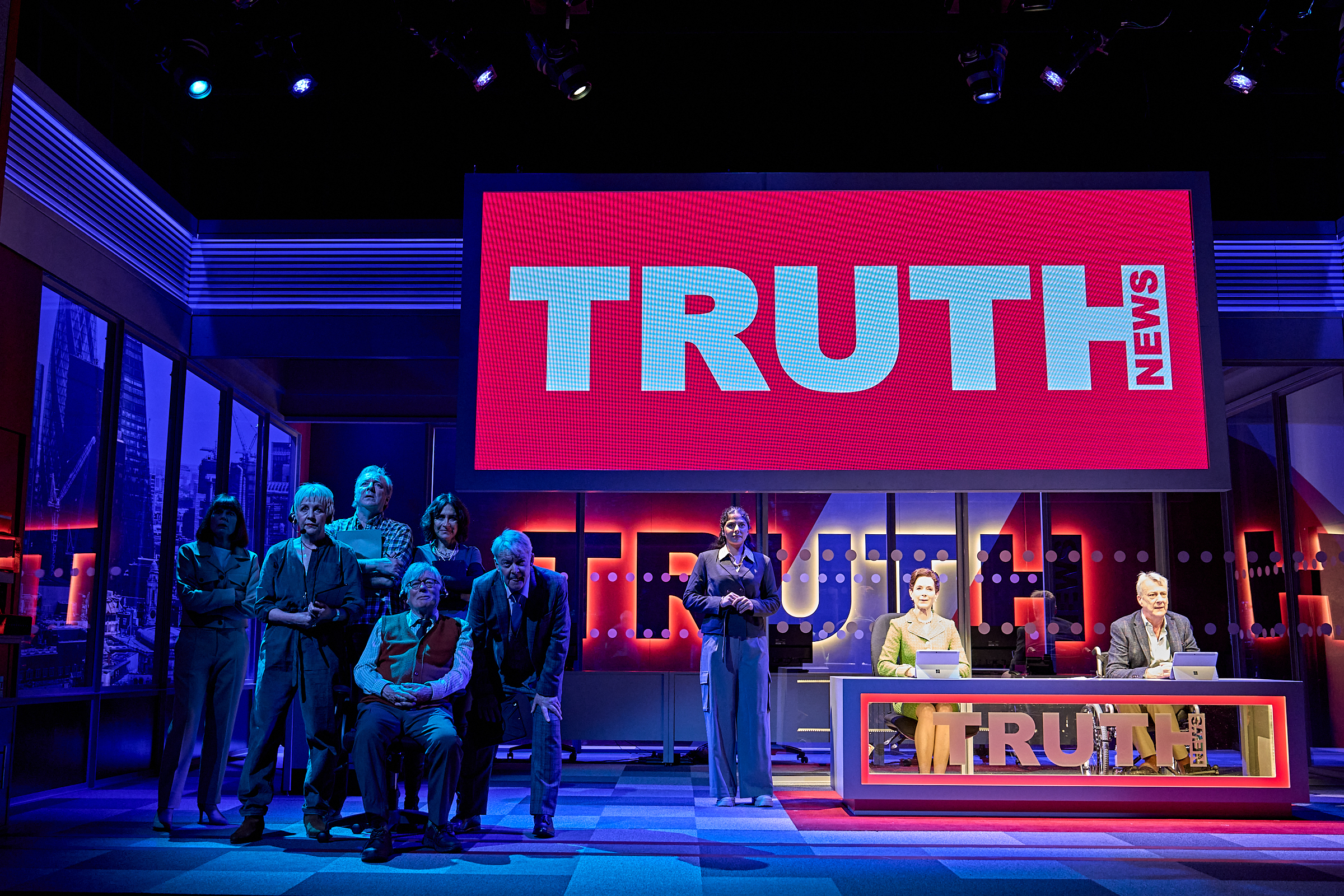
It’s been just over 25 years since the ‘GlobeLink News’ broadcast graced our screens and the return of the programme on stage did not disappoint.
I must admit, (and I’ll put this down to my age), I hadn’t actually watched the much loved, Channel 4 sitcom Drop the Dead Donkey before watching it on stage at The Lowry this week.
I heard that the show was obviously funny but it also did a great job of incorporating real life news of the time into each broadcast. I was especially keen to see if this show would follow suit, what sort of modern day journalism will they be commenting on and how will they do it?

The show kicked off with an old clip from the original series of editor George (Jeff Rawle) lecturing news reporter, Damien (Stephen Tompkinson), on the over-use of his teddy-bear prop in his broadcasts. The clip immediately resonated with the audience and served as a gentle reminder of the TV show’s earlier run.
The storyline follows the fledging news outlet, ‘Truth News’, as chief executive Gus (Robert Duncan) has brought the old broadcast gang back together again. Gus’ one and only goal is to put his new organisation Truth News back on the map.
From the start, we’re introduced to each member of the original cast at a time. Starting with George, who seems to be struggling with the new office’s voice-automated coffee machine. George then meets his past colleague and old friend, Dave (Neil Pearson), then Helen (Ingrid Lacey) enters the office and one by one the old ‘GlobeLink’ team are together again.

I noticed that the audience liked the staggered return of the characters; they seemed to beam with excitement every time a familiar face entered on stage.
Also in the office was former production assistant now head of HR, Joy (Susannah Doyle), who seems to not like anyone, especially Dave. Joining Damien anchoring Truth News is ego-centric Sally Smedley (Victoria Wicks), the former face of GlobeLink News.
To answer my previous question, yes, there were a lot of digs/comments made on the state at modern day politics. Something that may have differed from the Drop the Dead Donkey nearly thirty years ago however was the mention of “wokeness”. The theme of being “woke” was poked at by editor Gus, who failed terribly at modern-day work place etiquette but didn’t seem to care either way.
The laughs in the theatre seemed to get louder and louder as the production went on. One particular moment which stood out to me was the team’s entirely disastrous, almost pathetic, attempt at a TV broadcast. In true comedic manner, everything that could have gone wrong, went wrong. Watching Sir Trevor McDonald being electrocuted by the dodgy tech equipment had the audience (and me) roaring with laughter. Good on Sir Trevor for being such a good sport.

One noticeable distinction between the stage-version of Drop the Dead Donkey was the repeated mention of AI. Gus is adamant that the algorithm should set the basis for journalists and can absolutely be trusted, even though he’s not entirely sure what the algorithm does except from “rhythm the algo”. Gus represents an upcoming/ present form of digital journalism that lets technology lead which could undermine other verified, trusted news outlets.
In one of the final scenes, Damien addresses the need for truthful journalism by stating, “Honest journalism has power.” His passionate monologue on modern day journalism received an enthusiastic applause from the audience, so the message obviously struck a chord.
The cast obviously gelled well together, whether this is due to their previous time working together or not. Each performer seemed entirely professional and comfortable in their character and gave an effortless performance throughout. I think it was a real treat for the audience to see the cast again but this time in-person, the show carried a lot of nostalgia which I can understand is quite comforting.
To round off this review, I think the writer Andy Hamilton did an excellent job of ensuring the production remained up-beat while commenting on the serious issues of journalism today.















Recent Comments